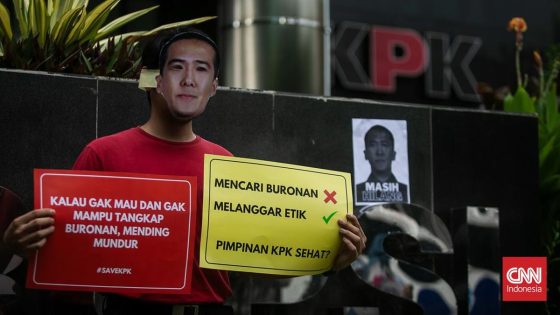On February 6, 2025, the KPK revealed shocking details about Harun Masiku’s escape during a botched arrest attempt. This incident, which took place on January 8, 2020, has raised questions about the effectiveness of Indonesia‘s anti-corruption efforts. How did a former legislative candidate manage to evade capture?
- KPK revealed wiretap results in court.
- Harun Masiku evaded arrest during operation.
- Hasto Kristiyanto allegedly aided Masiku's escape.
- Three suspects arrested in the corruption case.
- Hasto accused of obstructing justice investigation.
- KPK's operation details leaked before arrests.
Key Details of Harun Masiku’s Escape During KPK Operation
What really happened during the KPK’s attempt to arrest Harun Masiku? The operation, aimed at addressing corruption within the Indonesian legislature, faced unexpected challenges. The KPK’s announcement of the operation before all suspects were apprehended allowed Masiku to slip away. What does this mean for future operations?
Implications of KPK’s Operation and Harun Masiku’s Case
The KPK’s failure to capture Harun Masiku has significant implications for Indonesia’s fight against corruption. The botched operation not only allowed Masiku to evade justice but also exposed vulnerabilities in the KPK’s strategies. Here are some key points to consider:
- The KPK’s premature announcement compromised the operation.
- Masiku’s escape raises doubts about the effectiveness of law enforcement in high-profile cases.
- Hasto Kristiyanto, a key figure in the case, is also under investigation.
- The incident may deter public confidence in anti-corruption efforts.
Understanding the Role of Hasto Kristiyanto in the Escape
Hasto Kristiyanto’s involvement complicates the situation further. As the Secretary-General of PDIP, he allegedly instructed Masiku to destroy evidence and flee. This raises critical questions about political accountability and corruption within Indonesia’s ruling party.
Public Reaction and Future Consequences for KPK
The public’s reaction to this incident has been one of outrage and skepticism. Many citizens are questioning the KPK’s ability to effectively combat corruption. If the KPK cannot handle high-profile cases, what does this mean for the future of governance in Indonesia?
In conclusion, the escape of Harun Masiku highlights significant challenges within Indonesia’s anti-corruption framework. As the KPK continues to face scrutiny, the need for reform and transparency becomes increasingly urgent.

































